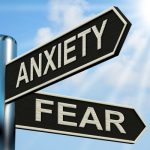Over Eating

A person with symptoms of compulsive overeating is characterized as having an addiction to food. Compulsive eating is used to hide or manage emotions, fill emotional voids or copy with daily stresses. Unlike a person with bulimia, a person with compulsive overeating disorder does not purge the excessive food ingested. This excessive consumption can cause …
Read More

Emotional eating, or stress eating, happens to the best of us. Just because you have a tendency toward emotional eating doesn’t mean you necessarily have an eating disorder – but without a certain degree of mindfulness, emotional eating can turn into a more serious problem. Emotional Eating Tips Here are some tips for coping with …
Read More

More than likely, we’re all guilty of comfort eating every once in a while. Sometimes, a person will emotional eat due to having a stressful day or others do it because of boredom. While small episodes of comfort eating aren’t generally a cause for concern, it can result in weight gain and become problematic when …
Read More

Overeating isn’t just a problem for those with eating disorders. In a culture where excess is now the norm, it can be hard for most people to recognize hunger cues and stop eating when they’re full – which often leads to discomfort, stomach pains and post-meal guilt. But putting down your fork is mostly an …
Read More

While bulimia is one of the well-known overeating disorders, this condition is considered to be pretty rare since it affects up to 4 percent of the entire population at most. However, there is another rare overeating disorder that most people are not familiar with called Prader-Willi syndrome. Prader-Willi syndrome is the most common genetic cause …
Read More

Emotional eating takes on many different forms. Some people eat when they’re depressed, other when they’re stressed and still others tend to overeat when they’re nervous or anxious. Anxiety can be a trigger for emotional eating because it creates extremely uncomfortable sensations in both the body and brain, which can be tempered by the pleasures …
Read More

Night eating syndrome is not the same as binge eating disorder, though some binge eaters are often night eaters. Those with night eating disorders eat large amounts of food during the night, but do not always binge. The disorder is equally common in men and women – those with night eating syndrome often feel out …
Read More

Food brings pleasure. This is why we associate good feelings with holiday Christmas cookies, a birthday cake or a glass of wine with a friend. But for some, obsessive overeating is rooted in the need to amplify this pleasure – in a way that usually ends up being destructive to mental and emotional health. What …
Read More

Eating only when you’re hungry sounds like a simple enough plan, but boredom can sometimes get the best of us. Tips to Avoid Overeating To keep yourself from restlessly staring into the fridge, here are a few ways to mold healthy habits. Drink water. People often confuse sensations of hunger for thirst. If you’ve eaten …
Read More

Uncontrollable snacking is a habit many people don’t realize can be corrected by simple dietary and behavioral changes. In general, the urge to snack comes from poor eating habits or a lack of awareness about nutrient balance. Follow these tips to help turn snacking into a healthy, guilt-free experience. Eat protein When you’re hungry, it’s …
Read More
 Eating Disorder Self Test. Take the EAT-26 self test to see if you might have eating disorder symptoms that might require professional evaluation. All answers are confidential.
Eating Disorder Self Test. Take the EAT-26 self test to see if you might have eating disorder symptoms that might require professional evaluation. All answers are confidential.
Find a Treatment Facility Near You
Click on a state below to find eating disorder treatment options that could be right for you.










 Eating Disorder Self Test. Take the EAT-26 self test to see if you might have eating disorder symptoms that might require professional evaluation. All answers are confidential.
Eating Disorder Self Test. Take the EAT-26 self test to see if you might have eating disorder symptoms that might require professional evaluation. All answers are confidential.